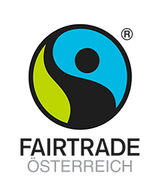von Fairtrade International
As cocoa prices fall in Côte d’Ivoire, Fairtrade urges EU for cocoa sector regulation to recognize the right to living income
The call comes amid the announcement of a 25 percent reduction in the farm gate cocoa price set by the Ivorian government for the next six months. For their part, Fairtrade certified cocoa cooperatives will earn the Fairtrade Minimum Price for their Fairtrade sales during this period, since the government-set price has dipped below it.
The drop in price comes after the governments of Côte d’Ivoire and Ghana, which produce two-thirds of the world’s cocoa, implemented a Living Income Differential (LID) of $400 USD per tonne on all cocoa purchased from farmers in the region as of 1 October 2020. The LID is intended as a step toward a living income for cocoa farmers, recognizing that low global cocoa prices have historically trapped farmers in poverty.
A backlog of unsold cocoa from the October 2020 to March 2021 period has been attributed to reduced demand due to the COVID-19 pandemic, with some reports that some buyers had reacted to the LID by reducing stocks or seeking out cheaper cocoa from other sources.
According to Fairtrade International, a living income commitment by chocolate-consuming countries would complement the Ivorian government’s efforts to stabilize the price of cocoa for farmers.
“It’s not clear how much of the decline in price is due to the pandemic, and how much was due to some buyers reportedly seeking to avoid the LID. But what’s clear is that farmers lose out. While some buyers have explicitly supported the LID, it’s not clear if all are. The LID is a powerful intervention by the Ivorian government that seeks to provide stability and improvement to all farmers’ livelihoods, which we have supported from the beginning. There needs to be a level playing field, and the human rights due diligence legislation under discussion in the European Union and member states provides just such an opportunity. If the human right to a living income cannot be recognized, then how will all other human rights of cocoa farming families be met in a sustainable way?” said Jon Walker, Senior Advisor for Cocoa at Fairtrade International.
The European Commission is holding a series of multi-stakeholder talks on sustainable cocoa to feed into relevant ongoing Commission initiatives, including on due diligence and deforestation. Human Rights Due Diligence proposals are expected in from the European Commission in 2021 alongside a proposal that may specifically name cocoa on reducing deforestation.
The Fairtrade Minimum Price of $2,400/tonne at FOB is now 13 percent more than the government price plus the LID, so producer organizations selling on Fairtrade terms will receive the difference of just over $318 per tonne. They also earn the additional Fairtrade Premium of $240/tonne to invest in their businesses and communities. As with West African cocoa overall, most Fairtrade cocoa sales are made during the main harvest, not the mid-crop period starting in April. Fairtrade has also set voluntary higher living income reference prices for cocoa from Côte d’Ivoire and Ghana, and is working with companies to improve livelihoods and sustainability within their supply chains.
“The price that cocoa farmers earn is not the only element necessary for their families to reach a living income, but it is an essential one. Whether the European Commission addresses living income by directly recognizing price or indirectly through the incorporation of living income in human rights due diligence, the subject must be addressed,” said Walker.
Contact the communications team
E-Mail: press@fairtrade.net

